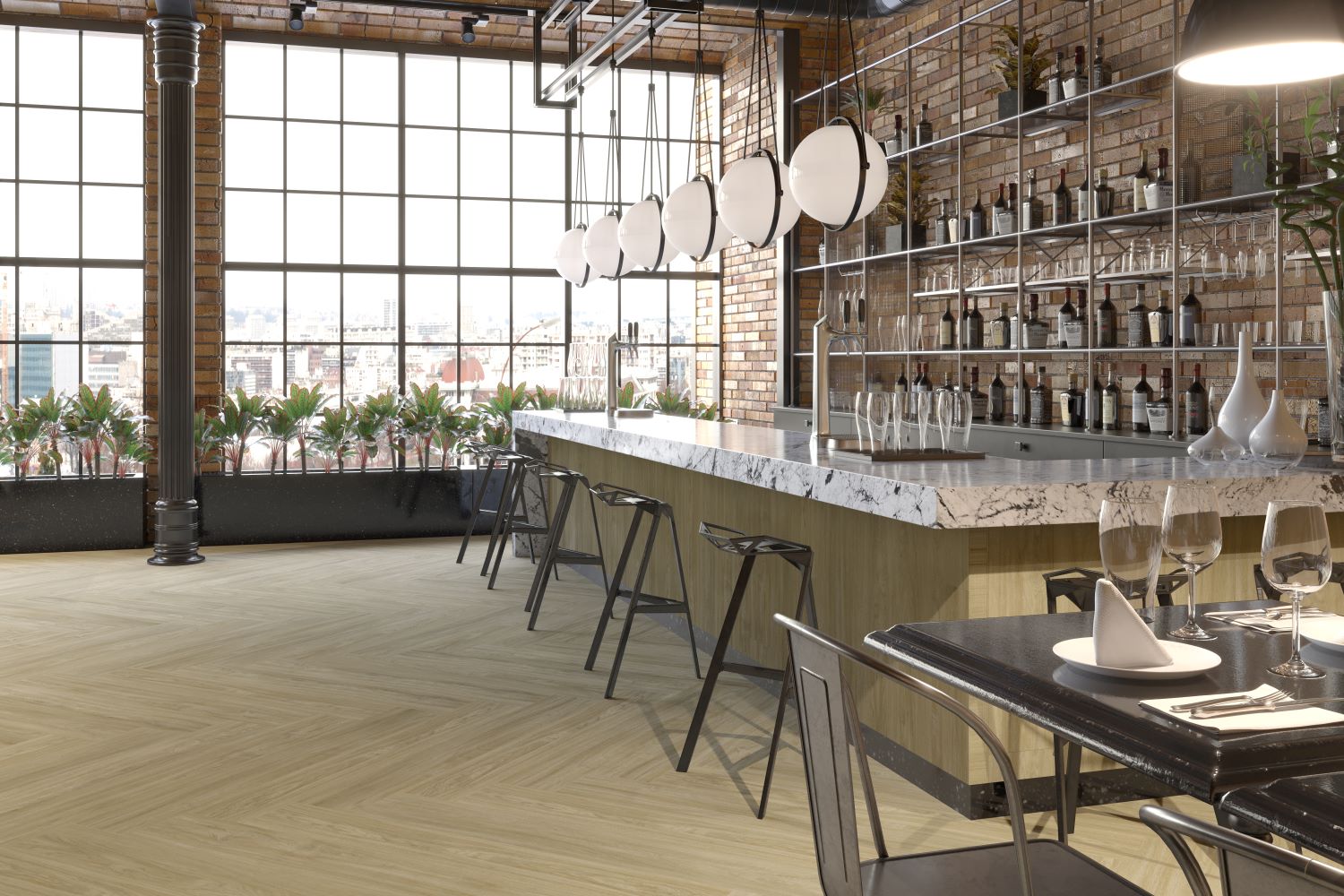
March, 2024
Choosing the right flooring for commercial spaces is a critical decision for flooring contractors and designers. It requires a delicate balance between aesthetics and functionality to meet the diverse needs of clients while ensuring that the chosen flooring material can withstand the demands of the commercial environment.
When it comes to commercial spaces, durability is paramount. These areas often experience heavy foot traffic, making it essential to select flooring materials that can withstand wear and tear without compromising on appearance.
Industry professionals often gravitate towards solutions such as carpet tiles, luxury vinyl tiles (LVT), and sheet vinyl, praised for their resilience and sustained visual appeal in high-traffic scenarios. These materials align with UK standards for commercial flooring durability, including the adherence to BS EN 649 for resilient floor coverings.
Maintenance considerations are crucial, with a focus on materials that offer ease of cleaning and minimal upkeep costs. For instance, carpet tiles featuring stain-resistant technologies offer practicality by allowing individual tile replacement. Hardwood flooring, while aesthetically pleasing, demands regular refinishing, a factor that contractors weigh against its long-term value and compliance with UK standards such as BS EN 14342 for wood flooring.
Aesthetically, flooring must encapsulate the desired ambiance of a commercial space. UK design trends currently favour the sleek, minimalist aesthetic of polished concrete and the warmth of hardwood flooring for modern office environments. Retail spaces, conversely, may opt for vibrant, patterned vinyl or colourful carpet tiles to foster an engaging consumer atmosphere, reflecting a keen awareness of UK consumer behaviour and retail design preferences.
Functionality is another key consideration for flooring contractors when selecting flooring materials for commercial spaces. Different areas within a commercial environment may have unique requirements that must be addressed. For example, kitchen and bathroom areas may require waterproof flooring options like ceramic tile, or specialist safety flooring solutions, such as Resolute, to withstand spills and moisture and aid safety requirements.
Similarly, spaces that require sound insulation, such as conference rooms or private offices, may benefit from carpet or cork flooring to minimise noise levels and create a more comfortable working environment.
Moreover, safety stands as a paramount concern in commercial settings, particularly in areas prone to slips and falls. Flooring contractors must give precedence to materials that possess slip-resistant properties, such as safety flooring like the Cienna range (shown above), in order to minimise the risk of accidents and injuries. Through the selection of safe and secure flooring options, contractors can contribute to the establishment of a safe environment for both employees and customers. Considerations here include mitigating slip hazards, and adhering to UK standards like BS 7976-2 for slip resistance.
In conclusion, the selection of appropriate flooring for commercial settings demands that flooring contractors strike a delicate balance between aesthetics and functionality. By taking into account factors such as durability, aesthetics, functionality, maintenance, and safety, contractors can opt for flooring materials that not only enhance the overall design of a space but also cater to the specific requirements of their clients. With the right flooring in place, commercial spaces can transform into inviting, functional, and secure environments for all occupants.